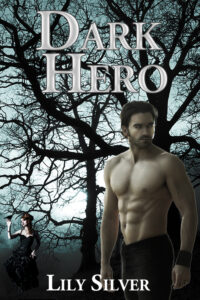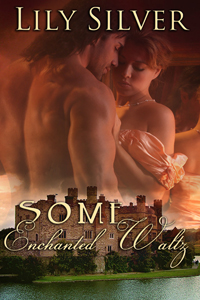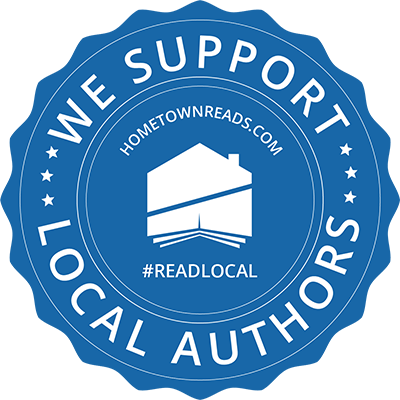Today marks a very special day for me. A year ago today I told my husband I wanted to work for myself and start my own editing business. Amazing how fast the year has flown by! September 12, 2011, we spent the day in our living room, thinking of a catchy business name and developing a business plan. I imagined, and he listened. Michael has always been my biggest supporter and when I chose Written Dreams over having a corporate job, we both knew it wouldn’t be easy.The time has passed so quickly–like that first year of life when you have a child, and they grow in such monumental stages.
I remember when my son was born, how elated and happy I felt–one that labor was over, and two that I was able to hold this beautiful little boy who I helped create. How excited I was that finally, I would have someone to love unconditionally no matter what. I knew there would be ups and downs. That was expected. My son is now 18, on his own in college, and has a lovely girlfriend that fits so well into our family. And my husband is still by my side after 20 years.

It’s been a long year in business, but I’m still as excited as I was a year ago. Let me take you back to May 2011. I was on the phone with Dorothy McFalls, at a mall of all places, going over some ideas for a new novel she and I were working on. At the time, I had a full-time job that I worked 60-80 hours at. And this particular phone call was during my lunch break. Although I loved my job in that industry, it wasn’t publishing. Dorothy, a true friend, maybe heard it my voice that day I wasn’t completely happy. I’m not sure. But I will never forget that conversation for the rest of my life when she asked me, “Brittiany, why don’t you go into business for yourself, as a freelance editor?” Me? Are you kidding? I couldn’t do that.
But the thought continued in the back of my mind over the next few months. A few other writers asked me the same thing. I shook my head. No, that’s something I definitely can not do. But these people believed in me–believed I could do it!
Fast forward a few months to August 2011. My son would be entering his senior year in high school. (Again the tears are coming.) If you know my son well, you know he’s always had a fascination with the ocean. That’s partly my husband’s fault for never missing Shark Week on Discovery, and partly mine for encouraging my son’s love for everything in the marine habitat. Books, movies, going to aquariums. We did anything to help him with his love of the ocean. (So many fun family memories.) I knew my son would be going out of state for college. It’s no secret that we live in Wisconsin, and although there’s plenty of rivers, lakes, and ponds here, it’s no ocean. I knew my son’s dreams would be taking him 1300 miles away from his family–in 9 months time. So, I did what every devoted mother would do. I quit my job. You know the job I was working at for 60-80 hours a week, out of town most nights, and away from my family. That job.The distance is what shook me. I wanted to spend every moment I could with my son before he left for college. I knew it wouldn’t be all happy family moments, but I would be there.

So, here I am–no job, and a family depending on my income. What to do? That conversation with Dorothy was still niggling in the back of my mind. I made a few feeler phone calls to some of my most trusted friends. I was a capable editor. Why not start my own business? Because I was scared. So scared to take that first step.
My husband believed in me wholeheartedly. My kids were excited Mom would be home more often. The writers who had become my friends knew I was an excellent editor and supported me. How could I let all of these people down who thought I would be successful?
So, I plunged in deep into my own personal ocean, and I am so glad I did. This would be my dream job. Helping writers achieve their goals–writers of all walks of life to fulfill their dreams just like some of those same writers that believed in me! 🙂
Thank you so much Dorothy McFalls for your inspiration! I’ll forever be grateful. And thank you to Terry Odell, Helen Osterman, C.C. Harrison, Karen Fenech, Jim C. Hines, Virginia McCullough, Barbara Raffin, Bob Rogers, Donna MacQuigg, Stacey Joy Netzel, Donna Marie Rogers, Lily Silver, Kristine Kathryn Rusch, and Ed Gorman for spreading the word and helping me become successful. Thank you to the writers who have been my clients, guestbloggers, or told their friends about us. Thank you to my family who never stopped believing, even if it meant another night of pancakes. Thank you all for believing in my Written Dreams!
Being happy, doing what I love–editing–is a dream come true. 🙂






 Terry Odell was born in Los Angeles, moved to Florida, and now makes her home in Colorado. An avid reader she always wanted to “fix” stories so the characters did what she wanted. Once she began writing, she found this wasn’t always possible, as evidenced when the mystery she intended to write rapidly became a romance. Although her genre is labeled “romantic suspense”, Terry prefers to think of her books as “Mysteries With Relationships.” Her titles include her Blackthorne, Inc. series, her Pine Hills Police Series, as well as other stand alone titles. Look for her newest release, NOWHERE TO HIDE, a spinoff of her Pine Hills Police series.
Terry Odell was born in Los Angeles, moved to Florida, and now makes her home in Colorado. An avid reader she always wanted to “fix” stories so the characters did what she wanted. Once she began writing, she found this wasn’t always possible, as evidenced when the mystery she intended to write rapidly became a romance. Although her genre is labeled “romantic suspense”, Terry prefers to think of her books as “Mysteries With Relationships.” Her titles include her Blackthorne, Inc. series, her Pine Hills Police Series, as well as other stand alone titles. Look for her newest release, NOWHERE TO HIDE, a spinoff of her Pine Hills Police series.




